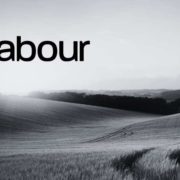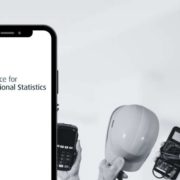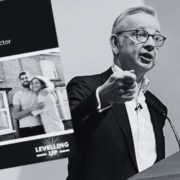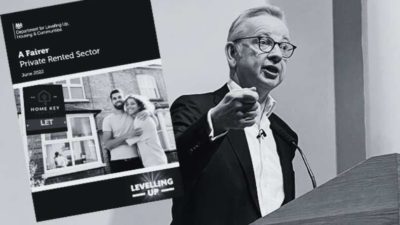The Bank of England have raised rates by 0.5% today, the first time since 1995 that the Bank has lifted rates by a half point.
The decision comes a day after the National Institute for Economic and Social Research warned that the rising cost of living was set to push poorer households into a perilous financial state, with the Institute predicting that one in five British families will have no savings at all by 2024.
Simon Gammon, Managing Partner, Knight Frank Finance, said:
“Mortgage rates are now changing on a daily basis and lenders are giving borrowers and brokers little notice about repricing.
We’re seeing two significant impacts on borrowers.
Firstly, some homeowners who are nearing the end of their terms are facing a shock when they come to refinance, because they are unable to borrow as much as they hoped.
Secondly, those who are looking to buy are realising once obtainable properties are now out of reach.
The question for them is now not “how much can I borrow?” but “how much can I afford to borrow?”.
This is a subtle but very important shift in borrower behaviour that is driving people to re-evaluate the price at which they can buy.”
Tom Bill, head of UK residential research at Knight Frank, said:
“Rising rates will dampen demand in the UK housing market but there won’t be a cliff edge moment.
With mortgage offers lasting for up to six months and the majority of homeowners on fixed-rate deals, the impact will be more gradual.
The Bank of England’s decision is a step back towards normality after 13 years of ultra-low borrowing costs.
At the same time, supply is rebuilding following the distortive effects of the pandemic and stamp duty holiday.
As rates and supply normalise, the current period of double-digit house price growth will come to an end.”
Paresh Raja, CEO of Market Financial Solutions, said:
“At the start of the week, the Bank of England scrapped mortgage affordability tests.
Coupled with today’s significant hike in interest rates, we have to expect some changes in the property lending space.
The challenge is to ensure the dual economic factors of rising interest rates and inflation do not result in inertia in the lending space.
Flexibility from lenders is going to become so, so important in the months to come.
In the current climate, using rigid tick-box methodologies will fail to serve the needs of property buyers.
Rather, lenders must demonstrate a little more creativity in how they assess loan applications; they must endeavour to tailor their products and services to the needs of the individual borrower; and ensure they take a view of the bigger picture as far as affordability checks are concerned.
Due diligence and rigour will, of course, be vital, but there is still room to adapt process and keep lending.”
Director of Henry Dannell, Geoff Garrett, commented:
“We’ve recently seen both the European Central Bank and the US Federal Reserve implement rate increases of 0.5% and 0.75% respectively and this has forced the Bank of England’s hand to act similarly in an effort to tighten their grip on rising inflation.
If it hasn’t already, this latest base rate jump will reverberate throughout the mortgage sector almost immediately, the result of which will be a notably higher cost for homebuyers and owners when borrowing to climb the ladder.”
CEO of Octane Capital, Jonathan Samuels, commented:
“The Bank of England has acted forcefully in response to inflationary pressures with the largest base rate hike in over a quarter of a century and this is going to further rock what is already a very unsettled mortgage sector.
While they walk the tightrope between curving inflation and avoiding recession, it’s the nation’s homeowners who can expect to pay the price with the monthly cost of their mortgage due to continue climbing.”
Director of Benham and Reeves, Marc von Grundherr, commented:
“This is the sixth time in a row that the Bank of England’s Monetary Policy Committee has chosen to increase interest rates, but today’s hike is the sharpest increase in borrowing costs since 1995.
Those of us old enough to remember the nineties may view today’s jump as no reason to run for the hills just yet and it is important we remember that rates remain comparably low to historic levels.
However, it will certainly alarm a generation of homeowners who have known nothing other than a sub one percent base rate since purchasing their home and are now facing an end to this sustained period of mortgage affordability.”
Managing Director of Barrows and Forrester, James Forrester, commented:
“The situation for homeowners is pretty desperate right now and rising inflation has already pushed many households to breaking point, as they’ve battled to manage the increased cost of living.
Unfortunately things look set to get quite a bit worse before they get any better, with inflation predicted to hit 15% by spring next year.
As a result, the cost of homeownership will become even less affordable, pushing it further out of reach for those already struggling with the financial hurdles of buying and owning a home.”
Managing Director of HBB Solutions, Chris Hodgkinson, commented:
“The current economic landscape is fast becoming a melting pot for property market instability and we can expect a very turbulent time ahead, with regard to both the number of buyers entering the market, as well as the price they are able to pay.
So far, the property market has stood firm in the face of increasing interest rates, but today’s jump is likely to put a dent in its otherwise impervious armour.
As a result, we expect to see the rate of house price growth slow and it’s only a matter of time before this translates to a drop in property values in some areas of the market.”
Founding Director of Revolution Brokers, Almas Uddin, commented:
“The nation’s borrowers have been feeling the pressure caused by a string of incremental 0.25% increases implemented since December of last year.
So today’s decision will certainly come as a concern for those already struggling with the increasing cost of their mortgage repayments.
Unfortunately, this looks as though it’s just the tip of the iceberg and along with the wider cost of living, mortgage payments are set to keep on climbing.”
Vadim Toader, CEO & Co-Founder of neolender, Proportunity:
“When we founded Proportunity in 2016, we wanted to help people get more for their money when they buy a home.
With today’s interest rates rise however, lending services like ours could well become an essential part of the purchase process for most ordinary buyers.
Many people across the country will be hit hard by rate rises and stretched even further to meet the requirements lenders will mandate on mortgage eligibility.
“Today’s announcement closely follows the recent £400 energy bill rebate designed by the government to help with the rising cost of living.
However, tenants whose bills are included in their rent could be missing out if their landlord doesn’t pass this on, meaning they are losing out again.
It’s clear more needs to be done to support those not just in the process of buying a house, but those looking to save and get on the property ladder too.”
Anna Clare Harper, director of real estate technology platform IMMO, says:
“Higher interest rates most significantly impact those borrowers on variable-rate mortgages.
Those who have chosen flexibility over a fixed commitment – estimated to be circa 850,000 mortgage borrowers, according to UK Finance – will see their costs increase.
Similarly, the 1.1 million borrowers on standard variable rates will see costs increase.
It’s likely that as a knock-on effect, these property owners will become more willing to sell, and at lower prices, boosting liquidity and supply in the housing market.
This is, however, expected to be a relatively short-term move, creating a temporary shift in negotiating power from sellers to buyers for the next 18 to 24 months rather than forever.
As ever, cash buyers will have the upper hand but they will also now have a higher cost of holding cash.”
Tomer Aboody, director of property lender MT Finance, says:
“With the trend in rising interest rates continuing, the property market is slowly showing signs of calming down from the frenzy of the past couple of years.
With property values at record highs, a continuous upward curve isn’t realistic and the return of more realism is long overdue.
However, with fewer buyers but also far fewer sellers, we are still seeing activity in the housing market, especially when it comes to prime assets.
How much more homeowners can absorb in terms of higher rates remains to be seen.
There is a fine balance between managing inflation but also driving mortgage payers into unrealistic payment situations.”
Mark Harris, chief executive of mortgage broker SPF Private Clients, says:
“Mortgage rates were always likely to increase again at this meeting but we are close to the end of rate rises.
If you look at Swap rates, then three, five and ten-year money is all lower than two-year money, suggesting the market feels rates will peak and start to come back down.
That said, there is still value in fixed-rate mortgages and borrowers who need budgeting certainty should always fix.
However, base-rate trackers are showing lower initial pay-rates and for those who can afford to be wrong – that is, if rates rise, they can still afford their mortgage – they are beginning to look a better option.
Lenders repricing upwards is not always entirely a response to a change in the cost of funds but a defensive mechanism to preserve service levels.
If banks feel they are being inundated with business and might struggle to cope, they may edge rates up slightly to make them less attractive to borrowers.”
Jeremy Leaf, north London estate agent and a former RICS residential chairman, says:
“Although recent reports confirm house prices are still rising, there is no doubt increased mortgage costs, and of course, the cost-of-living crisis, are having an impact on activity, as well as new business.
Low supply and near-50-year-low unemployment, as well as rising rents, are continuing to underpin demand for homes to buy, despite increasingly stretched affordability.
We know the Bank of England has very few tools in its box when it comes to controlling inflation and reducing the risk of recession so a rise in interest rates seemed inevitable.
Controlling inflation without compromising economic growth is the trick the Bank is trying to pull off.
Fortunately, 80 per cent of mortgage holders are said to have taken advantage of fixed rates so won’t be immediately affected.
But those whose fixed-rate mortgages are ending soon will be taking nervous looks over their shoulders with regard to the likelihood of further uplifts.”
Rose Lyle, director of private clients at property consultants INHOUS, says:
“With many of our buyers purchasing for cash, not everyone will be impacted by the latest interest rate rise as not everyone needs to raise finance.
However, it may negatively impact confidence for the many people who rely on a mortgage for their purchase, particularly those in the £750,000 to £2m bracket who are facing all the pressures of the rising cost of living.
At the upper end, another rate rise will have less of an impact than in the mainstream market.
It may effect the levels of stock that become available at some point but we are not seeing that yet.”
Adrian Anderson, Director of property finance specialists, Anderson Harris, comments:
“The 50 basis points increase to 1.75% is the biggest interest rate hike in 27 years and is a significant blow to many households who are already struggling with their outgoings.
There is no end in sight for the UK’s cost of living crisis.
Raising interest rates is one of the only weapons the Bank of England have and the government are attempting to choke off the highest level of inflation we have seen in 40 years however this is a global inflation crisis and the key drivers of inflation are energy prices and supply chain issues which are out of our control.
We have a mortgage interest rate ticking time bomb scenario.
Circa 74% of mortgages are fixed however it is likely these borrowers will be moving onto much higher rates at a time when many other outgoings have already increased.
It is widely expected that over the short term mortgage fixed rates will continue to be re-priced upwards hence take action now and speak with an independent broker to discuss your circumstances and options.”
Commenting on the Bank of England’s Interest Rate Decision, Shane O’Neill, Head of Interest Rates at Validus Risk Management, said:
“The Bank of England delivered on market expectations today, hiking rates by 50bps – the largest hike for the MPC since 1995. The MPC voted 8-1 in favour of the move, markets were expecting two dissenters so this can be seen as a marginally more hawkish move than expected and could signal more aggressive hikes in the future.
The caveat to this is that the BoE have become significantly more pessimistic about the state of the economy, predicting a recession that starts in Q4 this year and lasts through 2023.
Not just a technical recession but a drop in output of 2.1, the worst performance for the economy since the global financial crash should it come to pass.
Not done with shocks, the bank also predict a peak inflation print of over 13% and to remain elevated through much of 2023 – meaning the cost of living squeeze isn’t going away any time soon.
Unsurprisingly, the market has latched onto the worsening forecasts more than the expected 50bps hike and we have seen the pound fall more than 0.5% against the dollar and the euro immediately following the release.
Longer dated gilt yields have also fallen following the release with the 2s10s curve inverting for the first time since 2019.
The dreary predictions from the MPC represent ongoing pain for the consumer and focus will quickly turn to politicians to act – with Liz Truss the heavy favourite to take the Tory leadership, she may find the position a poisoned chalice as she takes the wheel just as we enter the worst recession in over a decade.”
Giles Coghlan, Chief Analyst at HYCM, said:
“Last month, the Bank of England vowed to act ‘forcefully’ should the occasion demand it.
Certainly, today’s 0.5 percentage point increase has shown that strong action from the central bank is required, as persistent inflationary pressures have prompted policymakers to take their most hawkish action yet.
Moreover, a greater-than-expected 8 MPC members voted in favour of the 50bps hike with only Tenreyo dissenting and wanting a 25 bps hike.
However, the BoE issued some grim warnings regarding growth.
Considering the impact that gas prices nearly doubling and a predicted rise in unemployment from 2023 will have on economic activity, the BoE has brought forward projections for a UK recession from 2023 into Q4 2022.
Prior to the decision, the markets had already been pricing in a potential move into double-digit inflation, which currently sits at 9.4% year on year.
The BoE now project that inflation will move to 13% in 2022 Q4 and remain elevated throughout 2023.
Combined with a worsening cost-of-living crisis and the slowing growth – all of which have been weighing heavy on the GBP for quite some time – the pound is likely to struggle now.
Investors must note that, following the Fed and the RBA in their latest rate hikes, the BoE stated that it is ‘not on a pre-set path’.
Therefore, moving forward, investors should watch growth data carefully.
The worse the growth data becomes, the more likely it is that the BoE will have to pare back on future interest rate hikes in 2023 and the more pressure the GBP would come under.
For now, the Bank of England is faced with the tricky situation of tackling double-digit inflation as the UK enters a recession, which is likely to weigh on the GBP in the medium term.”




















Comments